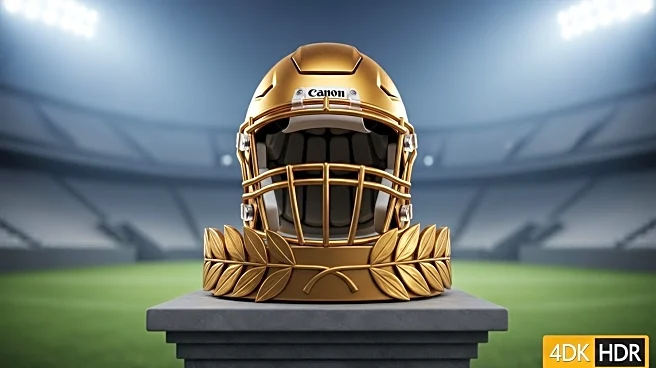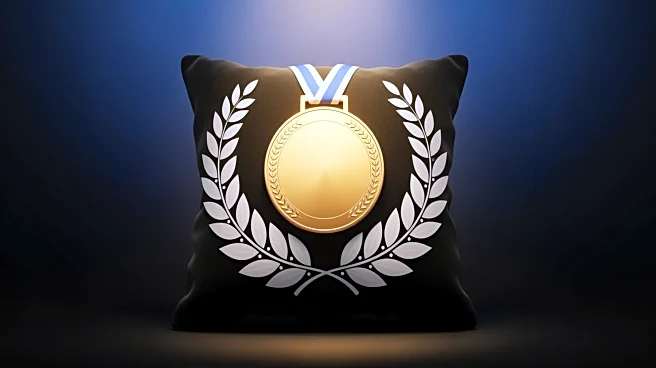What's Happening?
Stanford University's football program has received a historic $50 million donation from Bradford M. Freeman, a philanthropist and former trustee who played for Stanford. This donation is the largest individual gift in the program's history and is aimed at supporting the Cardinal's Name, Image, and Likeness (NIL) efforts. The funds will also create five new football scholarships for student-athletes. In recognition of Freeman's contribution, Stanford will rename the tunnel where players and coaches enter Stanford Stadium as the 'Bradford M. Freeman Tunnel' and a major entrance gate as the 'Bradford M. Freeman Gate.' Freeman, who graduated from Stanford in 1964, has previously endowed the nation's first head coaching position at Stanford, known as the Bradford M. Freeman Director of Football.
Why It's Important?
This substantial donation is crucial for Stanford as it seeks to enhance its competitive edge in college athletics, particularly in the realm of NIL, where it has lagged behind other institutions. The financial boost will help Stanford attract top-tier talent by offering more scholarships and supporting athletes through NIL initiatives. This move is expected to strengthen Stanford's position as a leading program in college football, potentially leading to more championship-caliber teams. The donation also reflects the growing importance of NIL in college sports, as universities across the country adapt to new financial demands and opportunities in athletics.
What's Next?
Stanford's athletic department, under the leadership of Andrew Luck, is likely to continue expanding its NIL efforts, leveraging Freeman's donation to build a sustainable future for the football program. The university may also explore additional fundraising opportunities to further support its athletic initiatives. As Stanford enhances its NIL capabilities, other universities may respond by increasing their own efforts to remain competitive in attracting student-athletes. The broader impact of this donation could lead to shifts in how college sports programs prioritize and manage NIL resources.
Beyond the Headlines
Freeman's donation highlights the evolving landscape of college athletics, where financial contributions are increasingly tied to NIL strategies. This development raises questions about the ethical implications of such donations and their influence on college sports. As universities navigate these changes, they must balance the pursuit of athletic excellence with maintaining academic integrity and equitable opportunities for all student-athletes.










